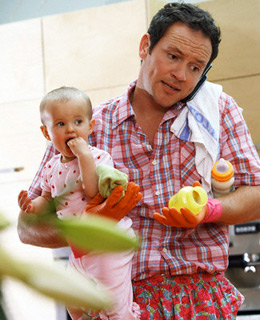
Society is plagued by time bankruptcy. But what if people asserted more control over their time to optimize their use of it? "Maybe you need to burn bridges, discard habits or situations that waste time and avoid emotional vampires," says Mary Ann Troiani, co-author of Spontaneous Optimism. "It's like house-cleaning at that point." Psychologists will say prioritize, set realistic daily goals that fit into the bigger picture and some time might be recovered. Troiani usually asks one pointed question to shock her clients out of their rut: How would you feel in two or three years if you still feel this way? "People sit there like a deer in headlights," she says. Her response: picture and imagine what you want to feel like. Maybe set aside two nights in your calendar to focus on those things that you'd like to spend more time on. Or as she puts it: cut the chase.